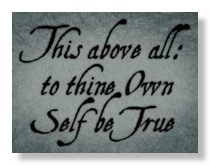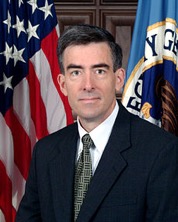NPR Interview on a "More Mellow" NSA
The National Security Agency "would welcome" the creation of a public advocate's position at the court that oversees its electronic surveillance programs, said its outgoing deputy director.
John C. "Chris" Inglis, who retires Friday after more than seven years as the NSA's No. 2, told Morning Edition host Steve Inskeep that "I would only put the caveat on there that it needs to be operationally efficient."
"So, let's say that I'm authorized to target the head of al-Qaida worldwide and I'm actively doing that," he continued. "I'm trying to figure out what communication services — selectors — that person is using. If at every moment in time somebody had to authorize me to put the next selector on — 'He just changed his email address, can I put that on?' — if that's where the advocate stands in, that's operationally not terribly efficient.
"But if there's going to be some novel interpretation of the law — if there's going to be some authority that's going to be applied as an extension of the law [that] might say, 'I've got a different view,' we'd welcome that."
The interview is a refreshing breath of fresh air in the polarizing debate over the impact of the Snowden disclosures. Perhaps a real dialogue is possible?

We recommend that the current commissioners demand a report from the staff over what exactly was FCC’s role in this and what lessons were learned. Perhaps the FCC IG might do this to get away from his usual practice of focusing solely on USF abuse and avoiding anything that might embarrass top leadership even though his statutory mandate is the same as all other agency IGs. (While the IG statute allows some cabinet secretaries to order their IGs to stay away from specified intelligence issues, the FCC IG is not subject to such a statutory limit.)




![Validate my RSS feed [Valid RSS]](valid-rss-rogers.png)

